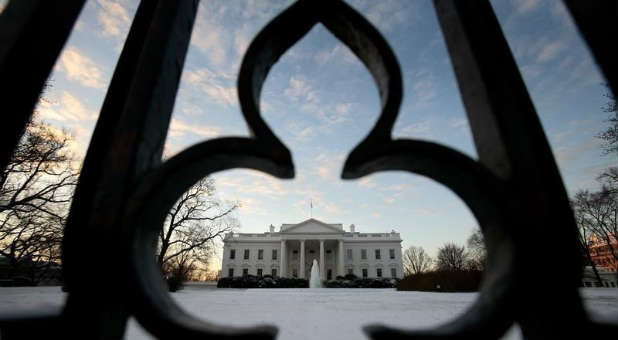Pollsters Offer 2 Simple Reasons Republicans Likely to Win in 2016
Elections are not mysterious events subject to the whimsy of unpredictable candidates and voters. They’re actually highly predictable, with a set of variables that influence outcomes in familiar ways.
Because of that, we can say, with reasonable confidence, that a Republican will be moving into the White House in 2017.
That conclusion is based on the results of a data model we created, and is primarily the result of two factors, both related to the challenges faced by “successor” candidates – candidates from the same party as the incumbent. First, a Republican will win because voters typically shy away from the party currently in power when an incumbent isn’t running. In fact, a successor candidate is three times less likely to win. Second, President Barack Obama’s approval ratings are too low to suggest a successor candidate will take the White House.
Why are we so confident, especially when opinion poll data now gives Hillary Clinton the edge over most Republican opponents? The simple answer is that we’re relying on models, not polls.
At this point in the election cycle, poll data asking the “horserace” question (“Who will you vote for in November 2016?”) can be very misleading. This far from Election Day, published poll data is off by an average of 8 percentage points compared with the true election outcome. That’s an enormous number when we’re used to elections where candidates win by two to three points.
Modeling results is a simple concept: look at past data, identify patterns, and use those patterns to make predictions. So we begin by aggregating data from past U.S. presidential elections, but are immediately hampered by the fact that there aren’t very many elections to work from – 25 if we go back 100 years.
So we created a much larger database of elections by looking beyond the United States to hundreds of presidential and parliamentary elections in democratic countries around the world. This exercise gave us far more data to work with: a sample size of more than 450 elections from 35 countries.
The most important finding from our model is the power of incumbency: if you already hold the office you seek, you are far more likely than not to retain it. Our model showed that incumbents have a threefold greater chance of beating their opponent. When no incumbent is running, successor candidates (in this case, Democrats) are three times less likely to win.
From our database of global elections we also learned about the importance of knowing where the public stands on the direction their country and leadership are going. Are they generally happy or unhappy with the government? There are a few ways to measure this, but the most universal (and therefore the one we use) is approval ratings of the sitting leader or president.
Our model proves the power of presidential approval ratings. It determines that in order for a successor candidate to have better than even chances of winning, the sitting president must have an approval rating of above 55 percent. Because Barack Obama’s average approval rating is now at 45 percent, a successor candidate (i.e. Democrat) is unlikely to win.
Our model works on the basis of probabilities, and is focused at the party level rather than the candidate level. It seeks only to predict the likelihood of a change to the party in power. It has an 85 percent predictive ability, so it’s right most – but not all – of the time. Things that could confound the model include rapid changes to Obama’s approval rating, or unusually high or low turnout (which can be driven by “wild card” candidates or other factors).
In the coming months, Obama’s approval ratings may tick up. But they would have to pass the 55 point mark to give the Democrats even odds of keeping the White House. This is extremely unlikely, given the fact that presidential approval typically declines over time, and Obama’s ratings are no exception.
Some will argue that Hillary Clinton is special; that her chances are significantly better because, given her popularity and status as a “legacy” candidate, she seems more like an incumbent. But if we go along with that hypothesis and run it through our model, at Obama’s current approval ratings,Clinton’s chances of winning the general election are still less than half.
The Democrats have quite a mountain to summit to retain power past 2016. {eoa}
© 2015 Thomson Reuters. All rights reserved.
Clifford Young is the President of Ipsos Public Affairs in the United States.
Julia Clark is a nonpartisan political and election polling expert, and a Senior Vice President at Ipsos Public Affairs.




























































